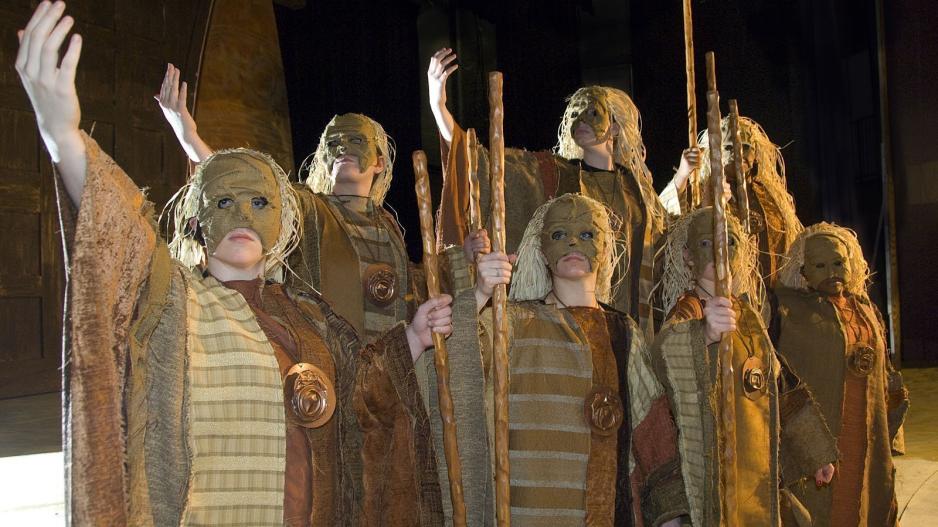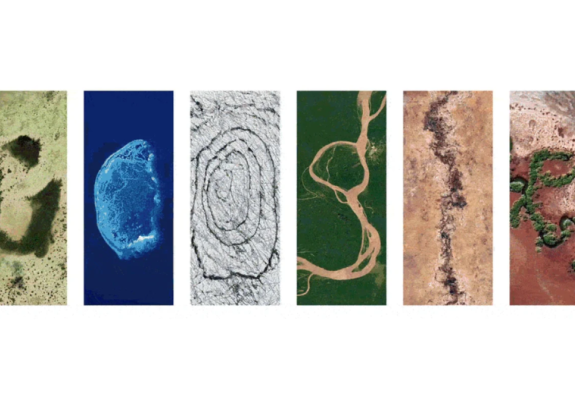A few words on the Origins of Drama
Bits and Pieces from the “Guidebook to the Drama” by Luis Varga
In his 'Poetics' (2.500 yrs ago), Aristotelis wrote, "From childhood men have an instinct for representation; and in this respect man differs from the other animals in that he is far more imitative and learns his first lessons by representing things. And then there is the enjoyment people always get from representations".
The earliest dramas we possess developed gradually out of songs and dances in honor of God Dionysus. They bear traces of strong ritualistic worship, notably in the in the function of the chorus.
The worship of the God Dionysus, God of wine and vegetation, was of ancient origin in Greece and songs and dances were composed in his honor and regularly performed at local festivals throughout Greece.
The strongly religious ancestry of the theatre is a factor of greater importance than is generally realized.
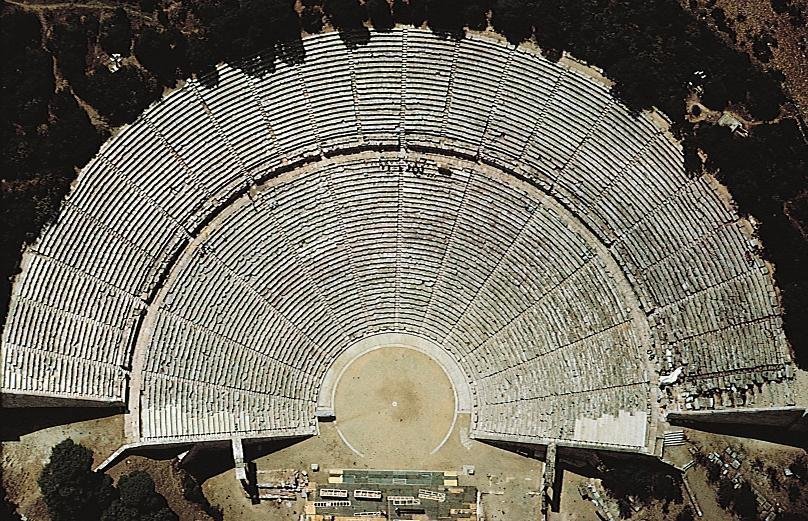 **A theater goer in those days would be prepare**d to spend the whole day in the theatre. He would bring some food and wine and join other Athenians and visitors at dawn, to get the best seat possible in a theatre of capacity of 20.000 people.
**A theater goer in those days would be prepare**d to spend the whole day in the theatre. He would bring some food and wine and join other Athenians and visitors at dawn, to get the best seat possible in a theatre of capacity of 20.000 people.
The Athenian had no newspapers, magazines etc. to compete for his attention. For his literary pleasures and entertainment he had to depend on conversations with his friends, occasional public recitations of passages of Homer and other poets, and the theatrical performances. As an audience they appear to have reacted in much the same way as audiences do today. Hissing, shouting, kicking their heels against the seats which were made of wood for it was not until later that stone seats were made.
The dramatic author of Ancient Greece was conscious of the importance of his task. Audiences came to see his plays not only for the pleasure of hearing his verses and admiring the actors but to receive at his hands advice and encouragement so that they might live a better and fuller life, as plays were often appealed to questions of science or morality, and maxims and quotations from the plays were on everyone's lips.
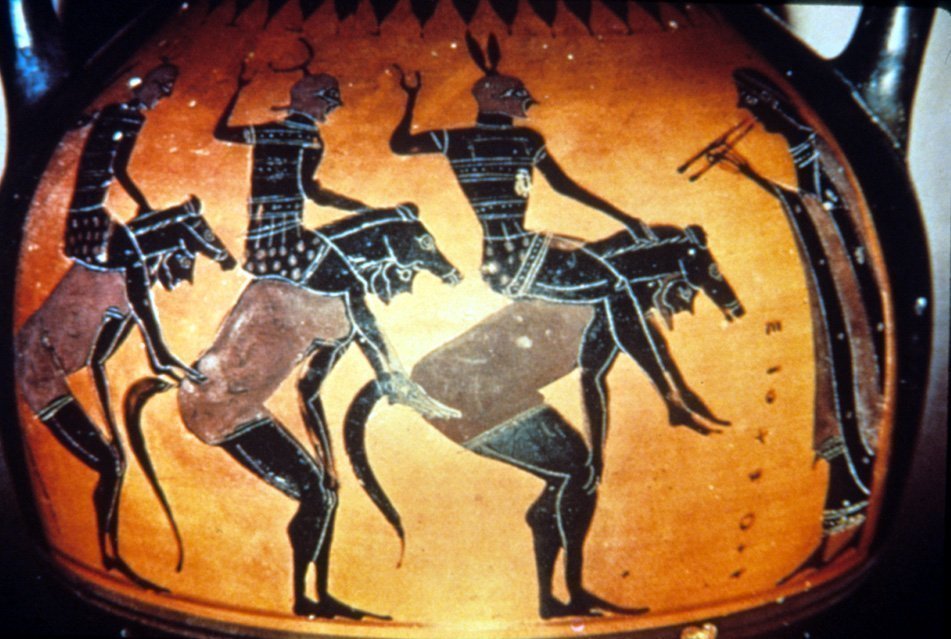 **The Chorus was composed of **fifty, later reduced to 15 men. They chanted and danced. It is hard for us today to visualize what a performance of a tragedy or a comedy must have been like in the Athens of those days. We are rather in the dark as to what dances the chorus performed, to what sort of music the choral odes where chanted or sung.
**The Chorus was composed of **fifty, later reduced to 15 men. They chanted and danced. It is hard for us today to visualize what a performance of a tragedy or a comedy must have been like in the Athens of those days. We are rather in the dark as to what dances the chorus performed, to what sort of music the choral odes where chanted or sung.
The actor wore brilliant clothes and had to be padded to keep proportions in size because he wore the 'cothurnos' or deep-soled boot to give him added height and majesty. He needed a powerful resonant voice to perform in the open in front of 20.000 with a mask that didn't aid good voice production either (though if you stand in the middle of the theatre and throw a coin it is heard at the end seats!).
Subtlety of facial expressions was out of the question, the mask was painted with exaggerated features and it is the mask that enabled the actor to change roles. Gestures must have been simple, direct and understood by the most distant spectator.
Subtlety of facial expressions was out of the question
The artistic restrain did not permit the dramatists to allow scenes of death, violence or torture exhibited on the stage. Such things happened offstage only and the events related by a messenger or some actor.
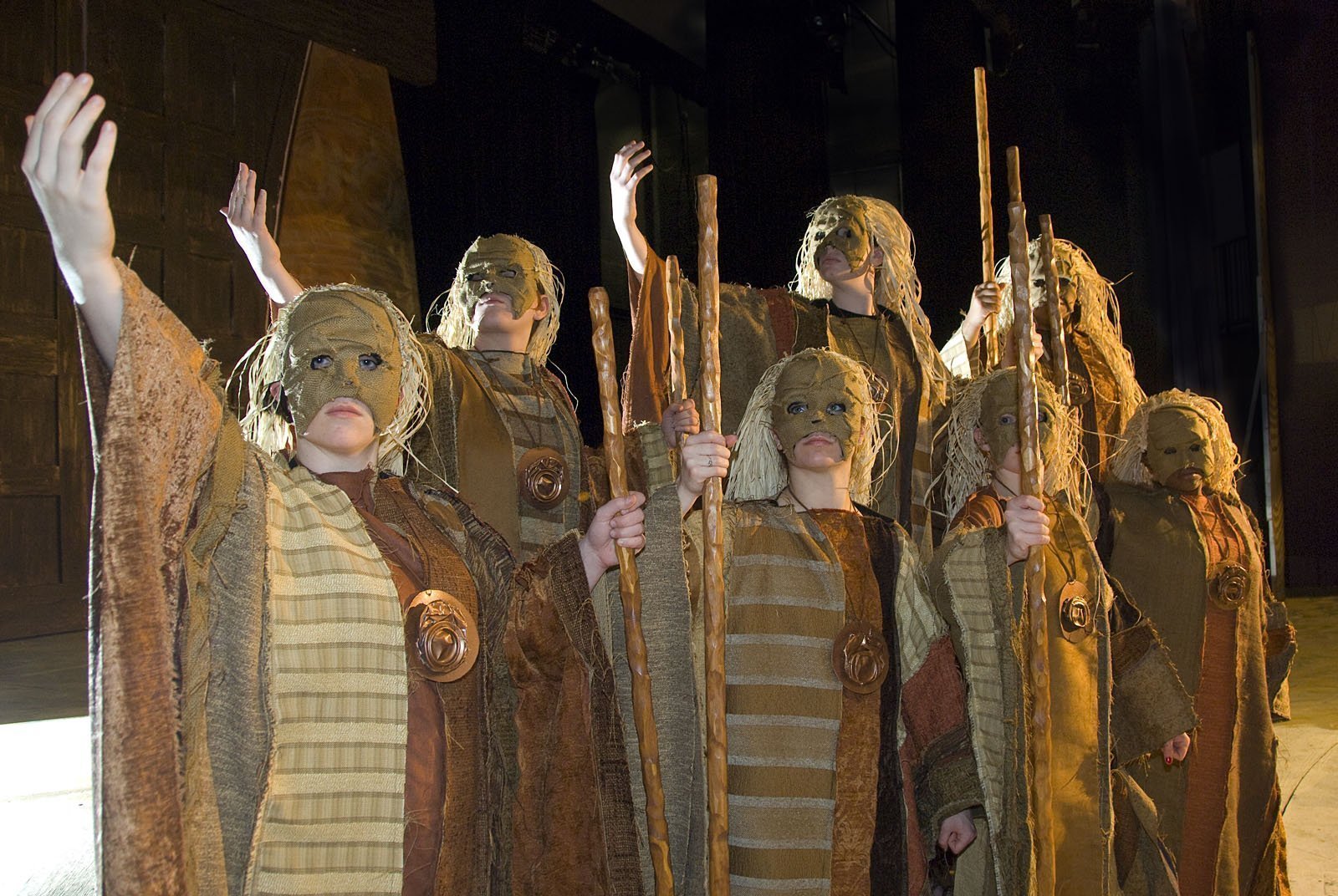 **For their sources of material they drew heavily on** the work of Homer(s) and the innumerable legends and myths, stories the audiences knew and loved and were eager to see how the poet would dramatize the story of Agamemnon, of Oedipus, of Antigone.
**For their sources of material they drew heavily on** the work of Homer(s) and the innumerable legends and myths, stories the audiences knew and loved and were eager to see how the poet would dramatize the story of Agamemnon, of Oedipus, of Antigone.
We do know the Greeks had a passion for perfection in form, as the plays show. Each dramatic scene is invariably introduced and rounded off by the choral odes with contain some of the loveliest poetry that the Greeks, who were superb poetry makers, have ever composed.
Follow us for the upcoming introduction of the three great dramatists Aeschylos, Sophocles and Euripides.
